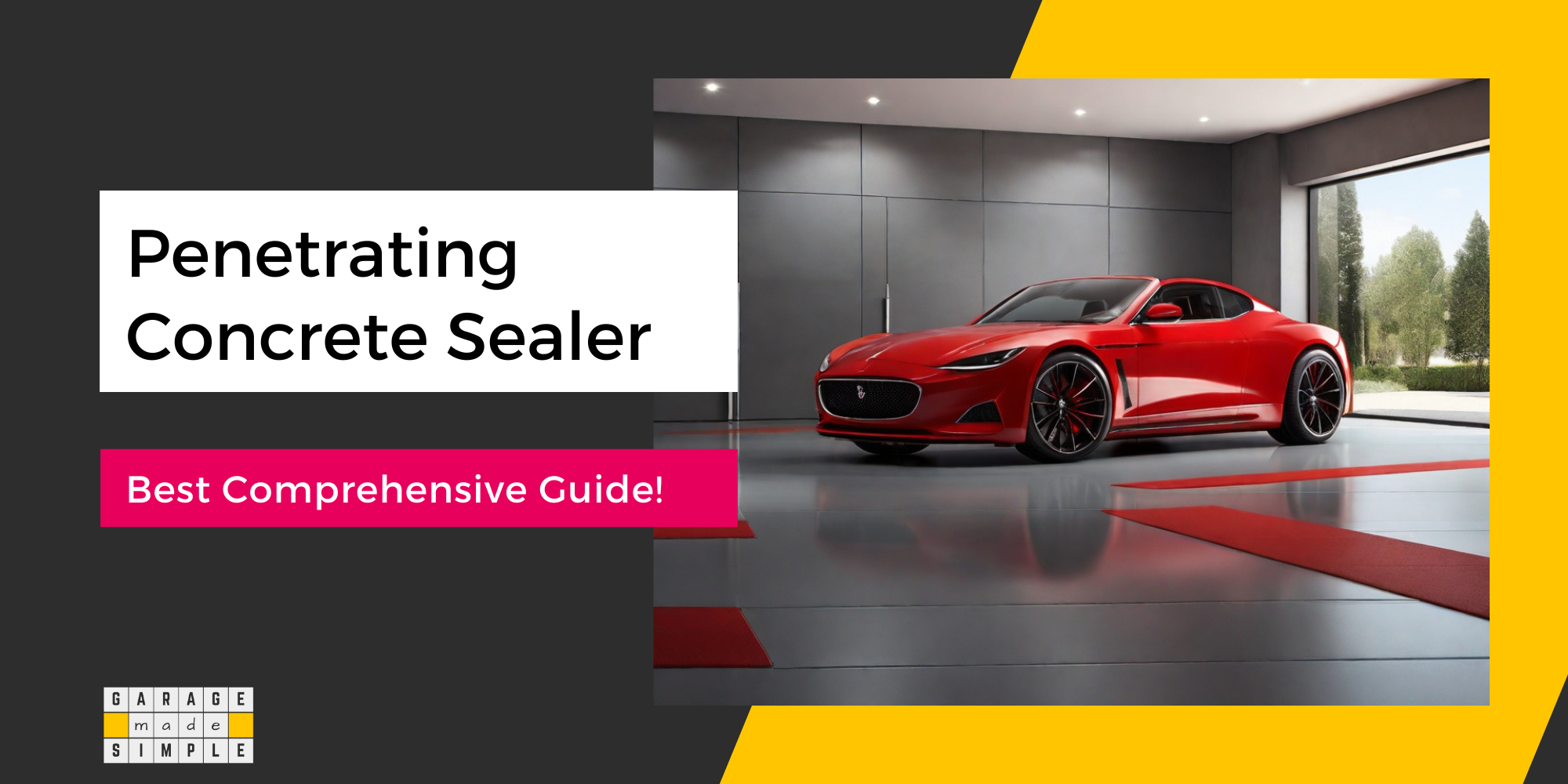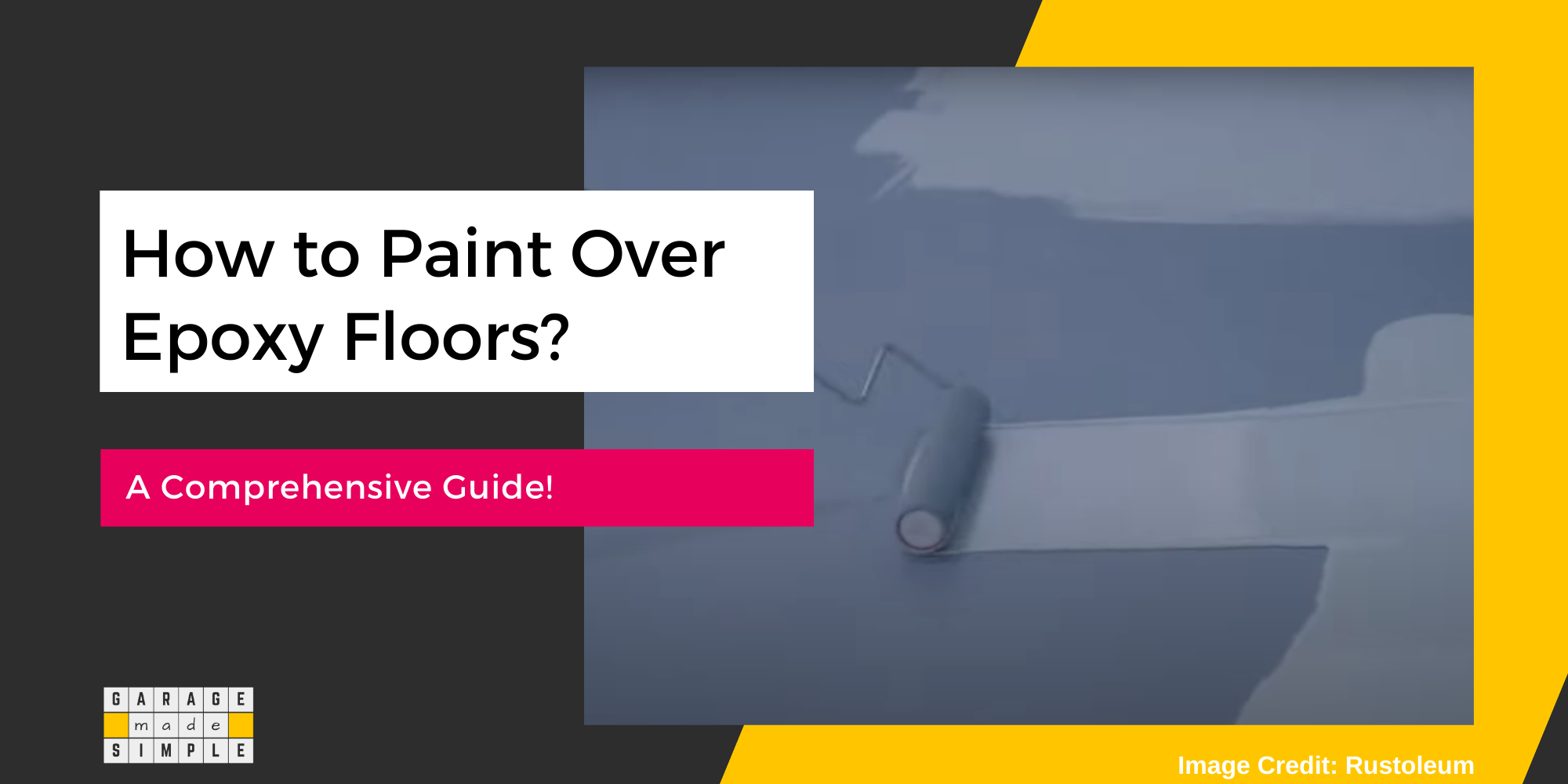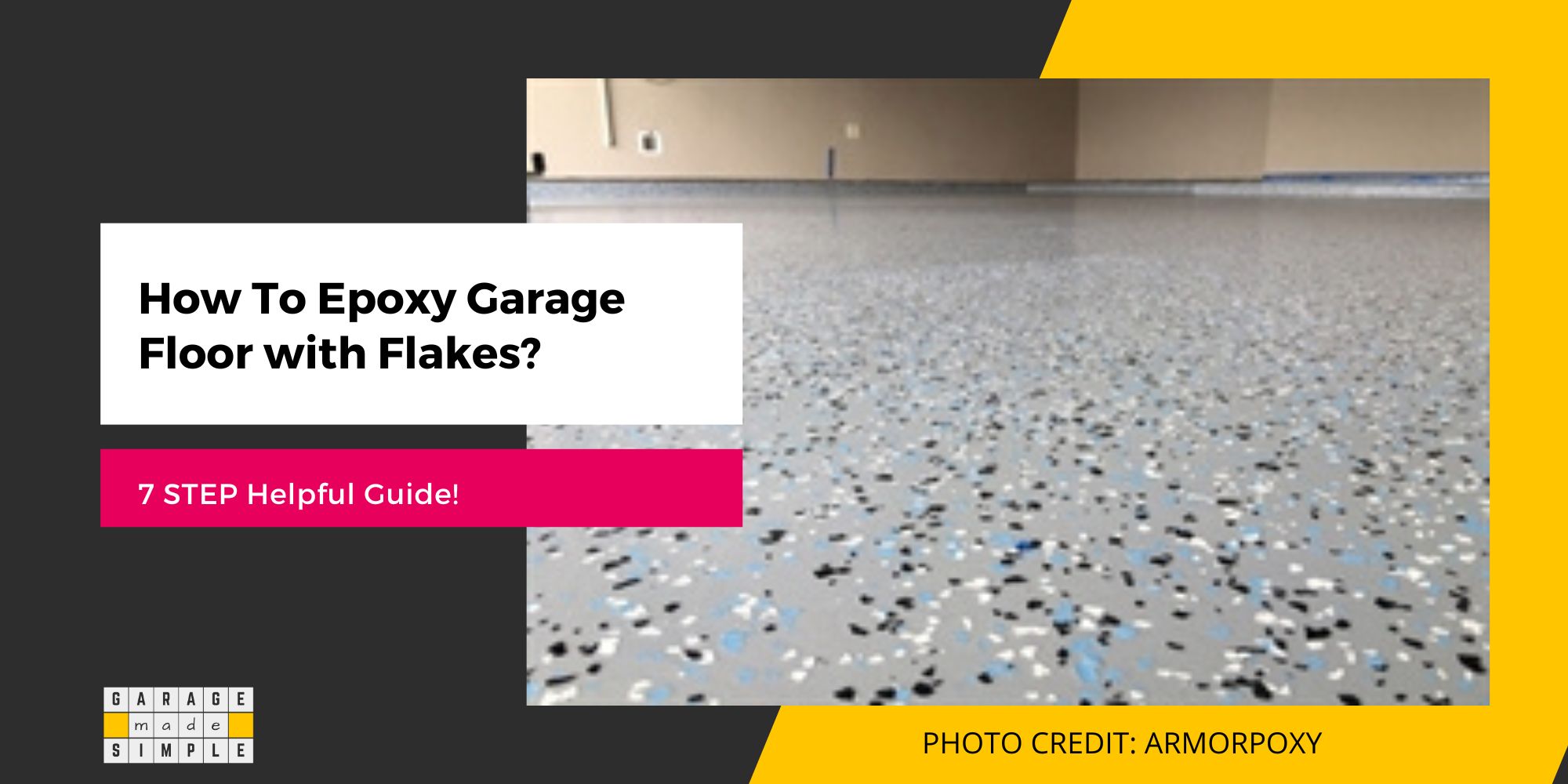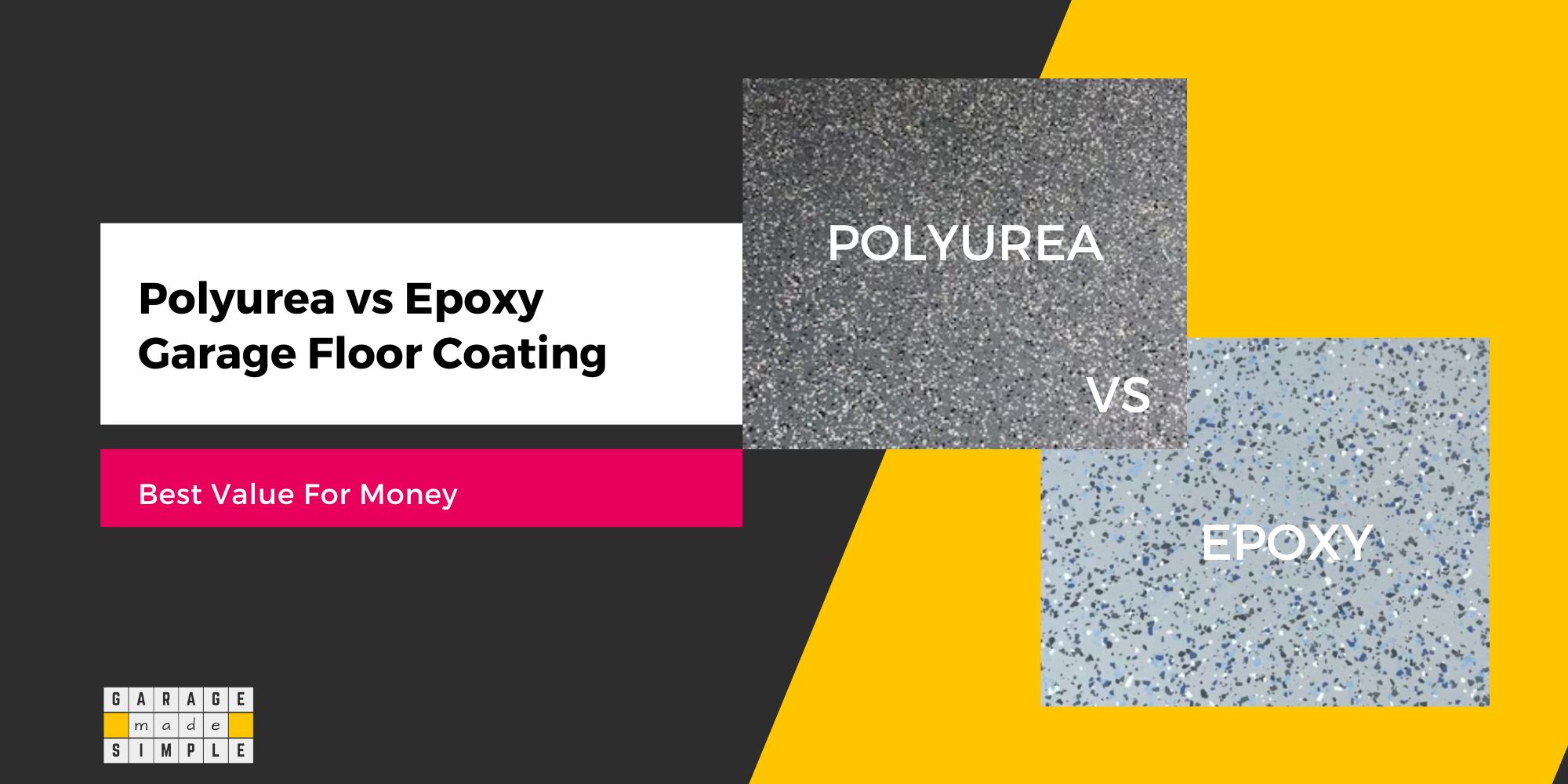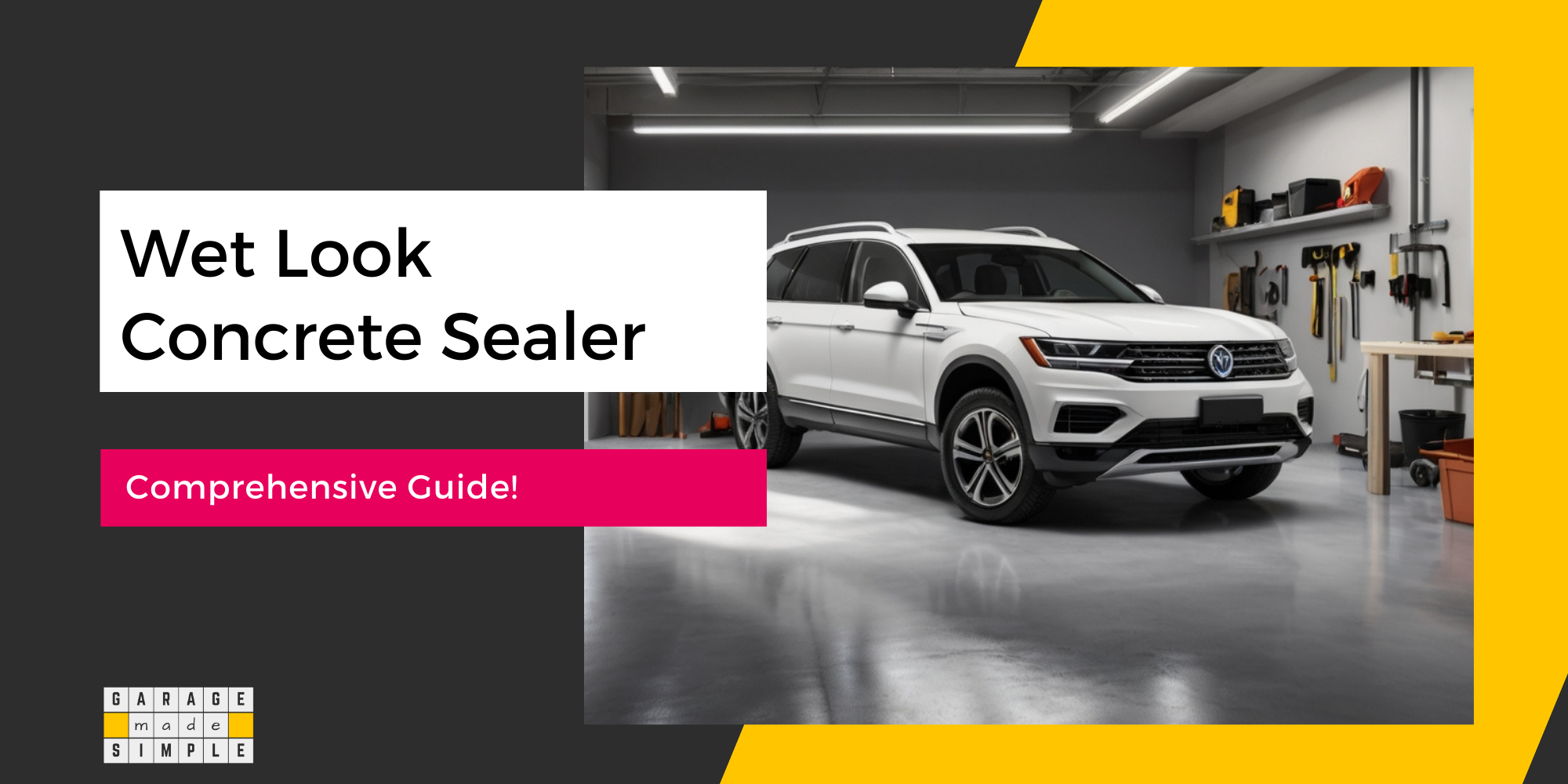Why It’s Best to Seal Concrete After Pressure Washing? Explained! [2024]
As an Amazon Associate, I earn from qualifying purchases.
Should You Seal Concrete After Pressure Washing?
Yes. It is best to seal concrete after pressure washing. This helps protect the concrete from water & moisture penetration and prevents stains from getting ingrained.
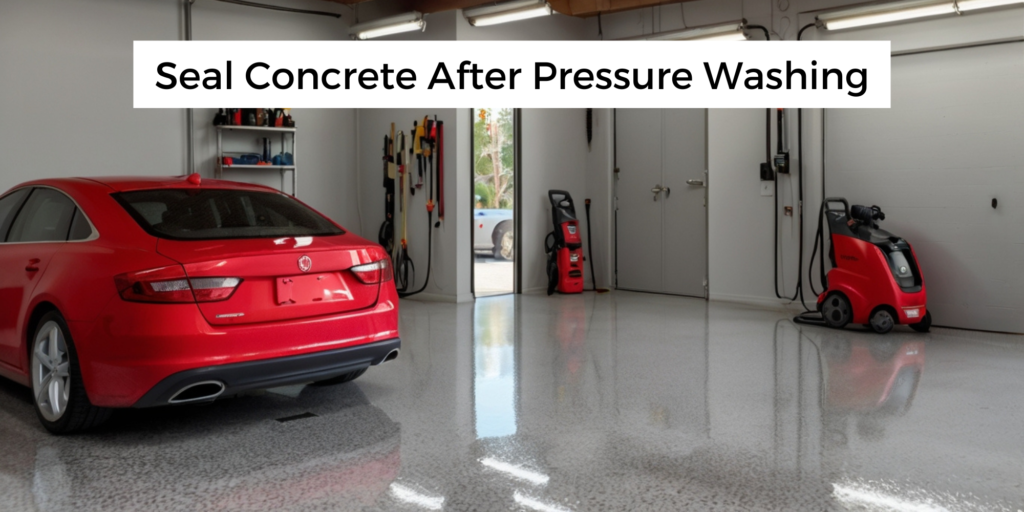
To be fair, resealing may not be required after every pressure wash. It is easy to perform a simple test to determine if resealing is required. The test is explained in this article.
Concrete is porous and readily absorbs water, dirt, and other contaminants. When pressure washed, the concrete surface gets cleaned but some, if not all, of the existing sealer gets abraded too.
Essentially this leaves the concrete surface quite naked as the pores in the concrete are now open. The concrete becomes extremely vulnerable to water penetration, and staining from oil, gasoline, pet urine, and other substances.
Water penetration into the concrete is highly damaging. The effects get magnified if the water, as is often the case, is also contaminated with chemicals.
Surface stains, such as those on sealed concrete are relatively easy to remove. However, when stains penetrate the concrete pores they are extremely difficult to remove.
All this results in a reduction in the lifespan of your concrete garage floor, a reduction in its structural strength, and a reduction in the value of your home.
Sealing concrete after pressure washing creates a barrier that blocks the ingress of water and other contaminants into the concrete.
Sealing concrete after pressure washing is the key to extending its lifespan and preventing stains that are difficult to remove. However, it is best to use a pressure washer surface cleaner attachment.
Seal Concrete After Pressure Washing: Pros & Cons
Sealing your concrete garage floor after pressure washing has its pros & cons. Here are the important ones:
Pros
- Protection from Elements: Sealed concrete surfaces are protected against water, snow, ice, and other harsh weather conditions. Pressure washing will remove a bit of the sealer coat. Resealing builds back the sealer coat, enhances the protection, and helps prevent cracking, fading, staining, etc,
- Stain Prevention: Concrete is inherently porous and can absorb stains from oil, gasoline, pet urine, and other substances. A sealer creates a barrier that prevents these stains from penetrating the concrete. It is much easier to clean stains if they are prevented from impregnating the concrete garage floor, by the topical sealer.
- Ease of Cleaning: With the sealer coat intact, dirt, dust, and leaves remain on the surface and can be swept, vacuumed, hosed or pressure washed easily. So, apart from the ease of cleaning stains, a sealed concrete surface is generally easier to clean and maintain.
- Extended Lifespan: An effective sealer coat prevents water, moisture, chemicals, and stains from penetrating the concrete and damaging it from within. The reinforcing material is less likely to rust or corrode. Essentially by sealing the concrete garage floor after pressure washing you extend its lifespan.
- Enhanced Aesthetics: Sealed concrete garage floors and patios have a more polished and attractive appearance. Some sealers can even add color or a wet look to the concrete, enhancing its visual appeal.
Cons
- Cost: Sealing concrete is expensive. However, the cost is usually for the sealer only as the application is simple and DIY friendly. In the long run, the cost is well worth it considering the pros listed above.
- Resealing Requirements: Any topical sealer will be depleted due to traffic and weathering. Pressure washing also causes a degree of depletion. While you do not need to reseal after every pressure wash, it is essential to periodically check the effectiveness of the sealer film and reseal as necessary to maintain protection.
Conclusion
Sealing your concrete garage floor after pressure washing is a prudent decision that offers numerous benefits, including protection, stain prevention, ease of cleaning, extended lifespan, and enhanced aesthetics.
There is a cost whenever you seal concrete after pressure washing, so it is best to check sealer coat effectiveness first.
The test is rather simple. Clean a small area of the concrete and sprinkle a few drops of water on it. If the water beads up, the sealer is still effective and resealing is not required.
However, if the water drops flatten out and get absorbed in the concrete, the sealer coat has been depleted and it is time to reseal.
My Recommendation:
Despite a couple of cons, sealing concrete after pressure washing is important. Of course, you must check the status of the existing sealer coat as explained above.
The benefits of sealing far outweigh the cons. A sealed concrete surface will look better, last longer, and be easier to maintain.
| Pros | Cons |
|---|---|
| Protection from Water Penetration | Is Expensive |
| Prevents Stains | |
| Easy Cleaning | Resealing is Necessary |
| Extends Lifespan | |
| Improves Aesthetics |
When Should You Seal Concrete After Pressure Washing?
You should wait 24-48 hours before applying a sealer after pressure washing. This allows the concrete to dry completely, ensuring better sealer adhesion.
Sealing the concrete too soon can lead to poor adhesion, resulting in peeling or flaking of the sealer. Flaking sealer can create tripping hazards or make the surface difficult to walk on. In any case, the sealer is unable to protect the concrete from water penetration.
It is not advisable to simply apply some more sealer over the peeled or flaked area. This new sealer application will also not have the required adhesion to the concrete surface.
The correct process to repair the flaking sealer is to remove it completely by using rough sandpaper or a stiff wire brush. Ensure that the remaining sealer is intact and has good adhesion.
What Do You Use for Sealing Concrete After Pressure Washing?
Topical Acrylic Concrete Sealer is the most popular and effective choice. Once in 5-8 years, you must reseal with Silane/Siloxane Penetrating Sealer as well. You can choose either a water-based or a solvent-based version.
1. Topical Acrylic Concrete Sealer
Topical Acrylic Concrete Sealers are a popular choice for both residential garage floors and decorative concrete patios. These sealers work by forming a protective film on the surface of the concrete.
Topical acrylic sealers form a barrier, preventing water penetration and shielding against harmful UV rays. Acrylic sealers are typically applied as a liquid and dry to form a clear or colored film coating.
Acrylic sealers, in addition to protection, also enhance the appearance of the concrete by adding a glossy or satin finish.
Armor WB25 High Gloss Wet Look Concrete Sealer
- Professional-grade water-based sealer
- Slight color enhancement for surfaces
- Long-lasting, non-yellowing high gloss finish
- Ready-to-use; easy roller or sprayer application
- Low odor, low VOC, suitable for interior use
- Aids in proper curing for new concrete
- Versatile use on various concrete surfaces
- Formulated for all 50 states
Armor AR500 High Gloss Wet Look Concrete Sealer
- Professional-grade concrete & paver sealer
- Dramatic color enhancement for surfaces
- Long-lasting, non-yellowing, high gloss finish
- Ready-to-use; easy roller or sprayer application
- Easy maintenance; self-priming formula
- Versatile use on various concrete surfaces
- Available in formulations for all 50 states
2. Penetrating Concrete Sealer
Penetrating concrete sealers work differently from topical sealers. Instead of forming a visible film, they penetrate the concrete and chemically react with it.
Penetrating sealers form compounds that fill the pores of the concrete, creating a protective barrier from within. They are particularly suitable for garage floors and driveways exposed to freeze-thaw cycles and heavy traffic.
Penetrating sealers protect the concrete from water penetration, salt, and deicing chemicals while maintaining the natural look of the concrete.
Penetrating concrete sealers must certainly be used on new concrete surfaces but only after the concrete has cured completely (typically 28 days). I recommend resealing with a penetrating sealer every 5-7 years.
Armor SX5000 Water-Based Silane-Siloxane Sealer
- Silane Siloxane Water Repellent
- Won’t change the look or color of the Concrete
- Excellent sealer for unsealed garage floors
- Will reduce damage caused by snow and ice, road salts, environmental exposure, and staining
Armor SX5000 Solvent-Based Silane Siloxane Sealer for Concrete
- Reduces surface water absorption by up to 95%
- Reduces damage caused by snow, ice, and de-icing salts
- Will last for up to 7-10 years
Thank you very much for reading the post. I do hope you found it informative and useful.





